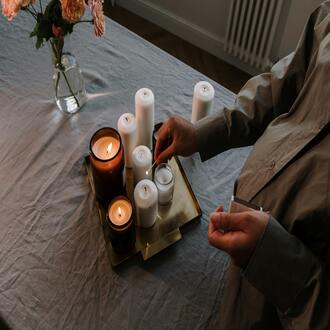Transcription Limits for life coaching
Defining boundaries in social interactions has nothing to do with distancing ourselves or avoiding a conversation. It does, however, refer to the respective physical or emotional distance we take.
But why set boundaries at all? What are positive and negative boundaries? What are rigid boundaries? Answers to these questions will be resolved in the development of this video.
Don't miss it. Learn how to set boundaries in your relationships. Allow everyone involved in the communication, including you, to rejoice in obtaining PEACE and WELL-BEING.
Unhealthy boundaries.
In short, a list of some negative boundaries, all those that serve to "justify" unhealthy behavior.
Possessing or wanting to be with a person, depending emotionally on him or her. To compensate a lack, for example: lack of love, with a compulsive behavior of eating in the early morning.
The use of psychotropic drugs to have a fictitious and not at all stable state of "happiness". Drinking to forget problems and feel good while the effect lasts in the organism.
Generalizing: If your food is salty, you assume that you are not a good cook, without giving yourself any opportunity to improve.
Healthy limits.
What are positive boundaries? Those that respect your peace and allow you to feel at ease. No conflicts!
Take care of and protect your mental health. Take care of your needs first and foremost. You express what you need in an assertive way, you do not allow yourself to be manipulated, nor do you fall easily to emotional blackmail. You take responsibility for your actions, avoiding blaming your bad decisions on others, emotions depend only on you, you respect and reciprocate positively in your relationships.
Set limits.
We understood the importance of safeguarding boundaries. Now we will internalize how we react to the boundaries we have already set in terms of personal, intimate or social distance:
- Did I make sure to let the boundary be stated.
- When and why does the "violation" of my personal space begin to make me uncomfortable.
- In what kind of situations or with which people do I choose to have more physical contact?
- What is my general response if someone oversteps a boundary?
- You might think that it would be irrelevant to take distance with close people such as: parents, siblings or close friends. Why put a distance to my partner? It doesn't make sense, does it?
- Well actually, where there is trust, that is where the most reinforcement is required. Why? Because where there is trust there is attribution, misplaced boldness, etc.
- With respect to personal possessions, it is also good to note distance. By possessions, I mean your home, cell phone, or clothes, etc. Taking a personal item can be invasive, in case they bother you, which is logical and reasonable, kindly and firmly state your inconvenience. It is your privacy.
- How do you set boundaries? The first thing is to know that you need it, identify what you need, and then do it.
- Why set a boundary in a specific area?
- You need privacy and your roommate spends all day coming in and out of your room without permission. Okay, does this boundary fall into the physical or emotional category? In this case you want them not to invade your space, it would be considered physical. If you would like to not be made fun of anymore, it would have an emotional connotation.
- Emotional boundaries have to do with whatever affects, redundantly, your emotions, feelings or beliefs.
What are rigid boundaries? Let's look at the concept: "rigid". A thing that is inflexible, that does not change. Setting inflexible boundaries does not take full advantage of the human approach. For example.
- I don't want you to touch my hair. Don't touch my hair ever again. People who, to some extent, impose these limits either disregard adaptation or miss the opportunity to be open to change. It's not the same as saying.
- I feel uncomfortable. I don't like having my hair touched. In this way, be specific about how you feel. Don't close yourself off. In case you have not been heard is the only time you can emphasize, but in a good way. Be calm. If you say
- I'll do the cooking, you always do the housekeeping.
- You are assigning roles, and not specifying that you want them to help you cook too or that you feel "inferior", being the only one who cooks. You can't get upset tomorrow by saying
- You never help me in the kitchen. I have to do everything myself. Be clear and direct with your interests. Boundaries are forged well from transparency, not from a dark corner waiting for them to read our mind. Concentrate from today on revealing which are the limits that you have introduced, without realizing it, in your relationships.
limits




